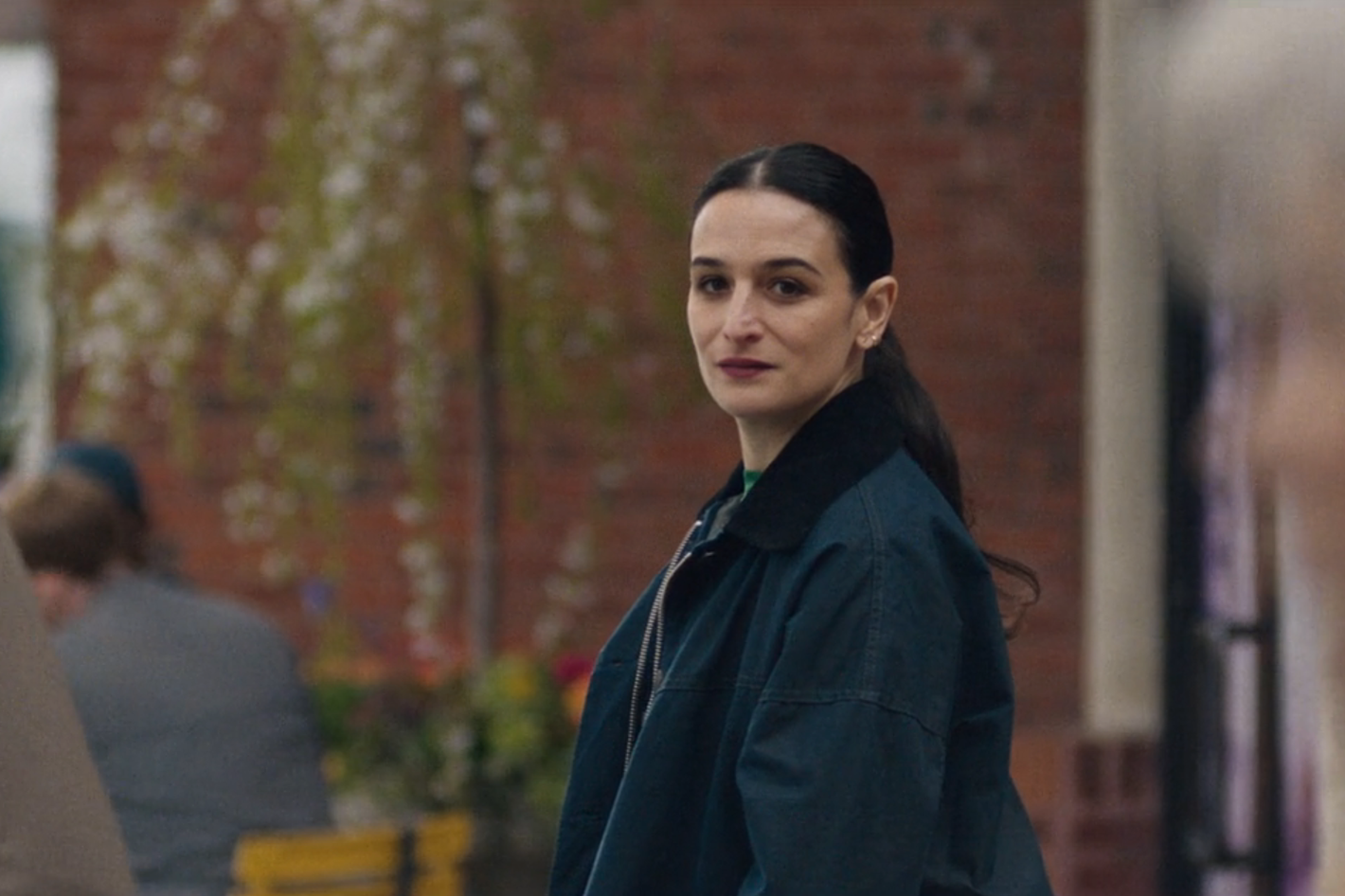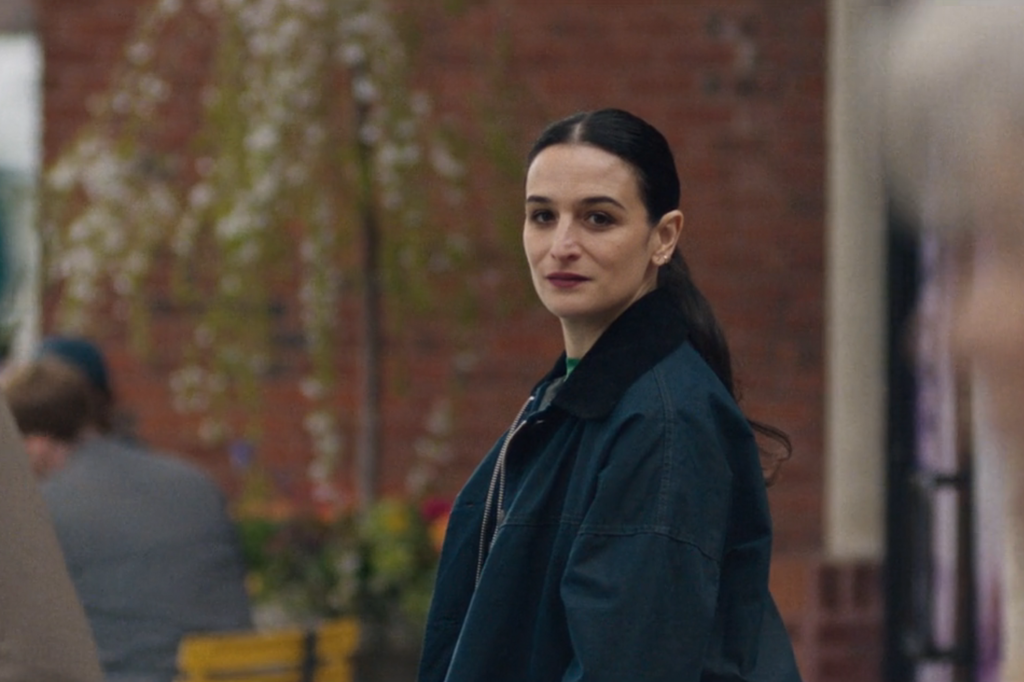
Good best friends, if you believe what you’re watching onscreen these days, are an endangered species. The big-city rom-com, the natural habitat for the cheery sidekick, doesn’t get made as often anymore. When it does, in projects like Materialists and Too Much, as some have pointed out, the women protagonists tend to hack their way through the modern dating scene without a solid confidante by their side. It’s too bad, because the role of the best friend is deceptively difficult. It requires someone able to convey the full humanity of a character just off from the center of the narrative without overplaying the cutesiness or underplaying their depth. It takes, mostly, someone like Jenny Slate.
Dying for Sex isn’t exactly a rom-com — though you could piece apart its structure and make that argument — but it has given us a best-friend Ur-performance from Slate as Nikki. Opposite the great Michelle Williams, whose Molly receives a terminal cancer diagnosis that spurs her on a quest of sexual exploration, Nikki is, in many ways, a classic best-friend type, a disorganized actress with a quick wit and an enthusiastic air of sex positivity. She takes in her sick friend when Molly’s prudish husband (in true terrible nice-guy form) can’t cope with her sexual needs and coaxes Molly along her journey of self-discovery, from dominatrix-related broken bones to pup play. But Slate also shades Nikki with such specific nuances, anxieties, and sadnesses that, even with a performance as powerful as Williams’s at its center, the show develops into a two-hander, something of a love story between the pair.
Dying for Sex is based on the podcast created by real-life friends Nikki Boyer, who was involved in the development of the series, and Molly Kochan, and some of the specifics of that friendship are taken directly from their lives. (Including the way Nikki cups Molly’s boobs in bed, as Boyer told my colleague Rachel Handler.) That also means the series allots space for Slate to depict the difficulties and rewards of serving as a caregiver. Nikki is introduced as a mess, a right-brained artist quickly overwhelmed by the paperwork and scheduling involved in caring for a patient. Later on, we discover she’s lost a job because she’s become so involved in helping out her friend. Nikki doesn’t realize what she’s getting into, but her love for Molly is so deep that she finds a way to learn how to master that work — or at least do it with more empathy.
Nikki becomes an advocate for Molly in her encounters with doctors, pushing them with follow-up questions and uncovering some of their own humanity along the way. She learns, too, to work through her own anger about Molly’s condition, finding it in herself to forgive the OB/GYN who ignored a warning sign and could have recommended treatment earlier. The character’s arc bends toward a greater sense of solidity and self-control — ”she experiences a deeper understanding and refinement of her own power,” Slate told Vanity Fair — though she doesn’t abandon that initial sense of whimsy and joy. In a scene late in the series, Slate gets to go goofy, entertaining a declining Molly in her hospital bed by alternating between reciting lines from A Midsummer Night’s Dream and Clueless and improvising as much French as she can invent. Slate doesn’t let the sense of purpose slip from her face, emphasizing the gravity of her task even as she nails an impression of Alicia Silverstone’s Valley Girl line deliveries.
The best friend is the kind of role Slate has performed onscreen many times over, but that doesn’t mean her work in Dying for Sex should be taken for granted. In more archetypal rom-coms such as This Means War or It Ends With Us, Slate plays the more interesting friend or assistant to a blonde main character. She has led her own projects, as in Obvious Child or Marcel the Shell, but she has a particular knack for a memorable supporting turn — a dog mom in Everything Everywhere All at Once, a doctor at the evil lab in Venom. In a crowded Emmys race, some might discount Slate’s work on Dying for Sex as a too solidly within a familiar wheelhouse, yet it’s difficult to imagine anyone but Slate pulling off this kind of performance. In the final scene of the series, after Molly’s death, she’s taciturn, watching two older women laugh and tease each other. Slate doesn’t have to say anything to convey her grief over losing the opportunity to share these kinds of moments with Molly. But the show ends on a shot of Slate, in close up, laughing to herself and catching a breath in her throat. A lesser actor might go all in on the tears here, hunting for a blubbering moment that would make for a good awards-show clip. Instead, the gentle devastation on Slate’s face becomes Dying for Sex’s powerful final frame: Nikki seems to catch herself before the heartbreak can overwhelm her, her smile serving as a reminder that she can comfort herself with all the good memories of Molly, too.
Related
She’s made a career out of compelling supporting turns, but she raises the bar on the best-friend archetype in Dying for Sex.

































































